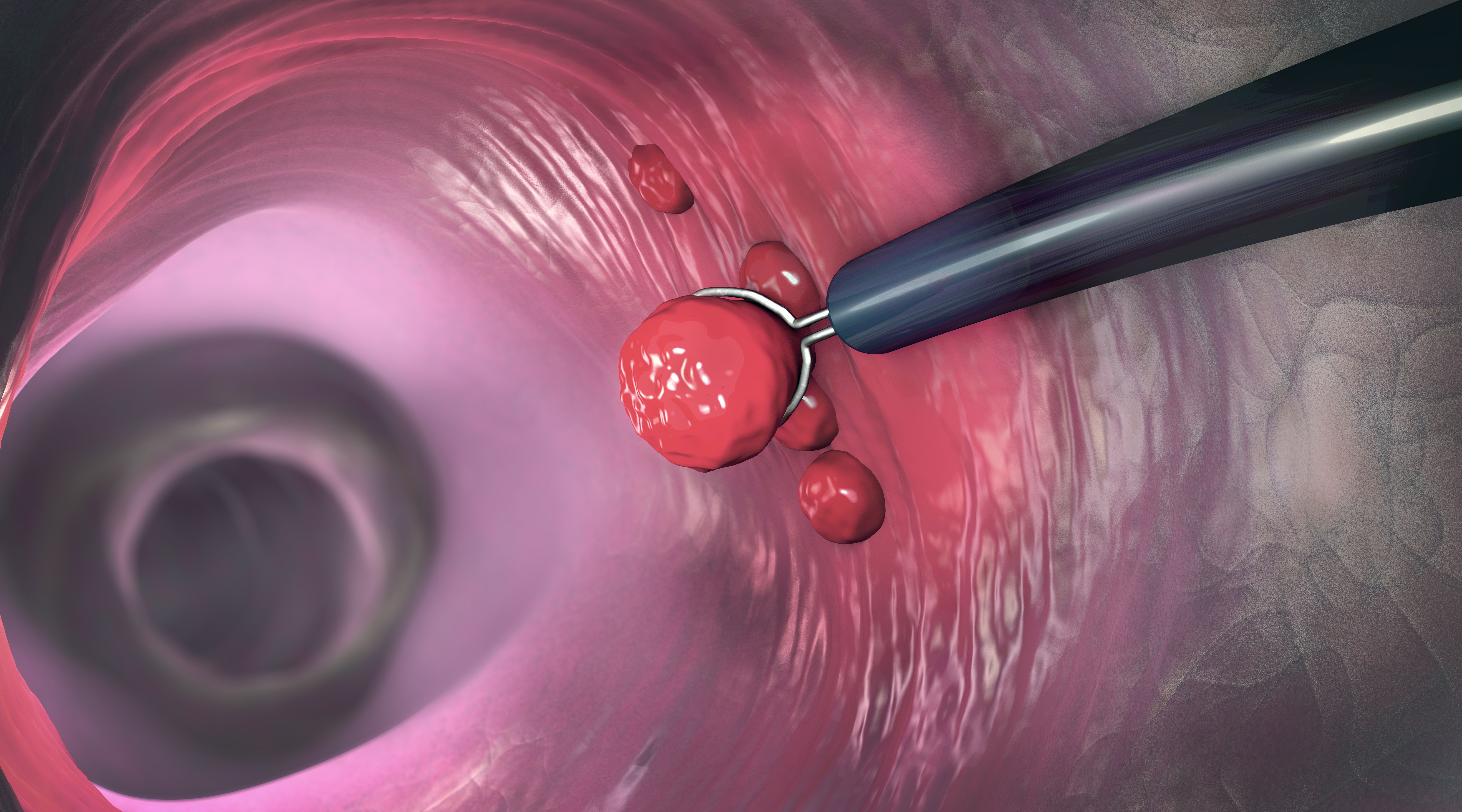Article
Vedolizumab Effective as Colitis Treatment, Study Shows
Author(s):
Vedolizumab proves to be superior to adalimumab for in achieving clinical remission and endoscopic improvement for ulcerative colitis, but not corticosteroid-free clinical remission.
Vedolizumab proves to be superior to adalimumab for in achieving clinical remission and endoscopic improvement for ulcerative colitis, but not corticosteroid-free clinical remission. (©ChristophBurgstedt,AdobeStock)

In a head-to-head trial, vedolizumab (Entyvio, Takeda) was superior to adalimumab (Humira, AbbVie) in achieving clinical remission and endoscopic improvement, but not corticosteroid-free clinical remission, in patients with moderate-to-severe ulcerative colitis, say researchers writing in the New England Journal of Medicine this month.
Agents that are commonly used to treat ulcerative colitis when conventional therapies fail include tofacitinib, a small-molecule Janus kinase inhibitor, and biologic agents, such as the tumor necrosis factor (TNF) inhibitors infliximab, adalimumab and golimumab, and vedolizumab, an anti-integrin antibody. While randomized, placebo-controlled trials have shown these medications to be effective, few head-to-head trials have been performed in patients with inflammatory bowel disease.
“Here we report the results of the VARSITY trial, which directly compared the efficacy and safety of vedolizumab with those of adalimumab in patients with moderately to severely active ulcerative colitis,” wrote the authors, led by Bruce E. Sands, M.D., of Icahn School of Medicine at Mount Sinai in New York.
Vedolizumab is a gut-selective monoclonal antibody that binds to the leukocyte integrin α4β7, and adalimumab is a humanized monoclonal antibody that binds and neutralizes TNF.
The multicenter, phase 3b trial, which was conducted from 2015 to 2019, included 769 patients with moderately to severely active ulcerative colitis. Previous exposure to a TNF inhibitor other than adalimumab was allowed in up to 25 percent of patients. Participants were randomized to vedolizumab (n=383) received intravenous infusions of 300 mg every eight weeks, while those assigned to adalimumab (n=386) received 40 mg subcutaneously every two weeks. Dose escalation was not permitted, but stable doses of corticosteroids, aminosalicylates, or immunomodulators were allowed. The primary outcome was clinical remission at week 52 (defined as a total score of ≤2 on the Mayo scale and no subscore >1 on any of the four Mayo scale components).
At week 52, clinical remission was observed in 31.3 percent of patients in the vedolizumab group and 22.5 percent in the adalimumab group (95% confidence interval [CI], 2.5 to 15.0; P = 0.006). Respective endoscopic improvement was 39.7 percent and 27.7 percent (95% CI, 5.3 to 18.5; P<0.001).
Corticosteroid-free clinical remission occurred in 12.6 percent and 21.8 percent of patients, respectively (95% CI, -18.9 to 0.4). Meanwhile, respective exposure-adjusted incidence rates of infection were 23.4 and 34.6 events per 100 patient-years with vedolizumab and adalimumab, and the rates for serious infection were 1.6 and 2.2 events per 100 patient-years, respectively.
“There were no notable treatment differences between patients who were receiving concomitant immunomodulator therapy and those who were not.”
“The results of the current trial suggest that corticosteroid-free clinical remission occurred in a higher percentage of patients in the adalimumab group than in the vedolizumab group. It is difficult to explain the inconsistency of the results between this secondary remission outcome and the primary remission outcome," the authors wrote.
According to the authors, the limited number of participants who had previously received TNF therapy may partly explain the lower overall response to active therapy seen in this trial compared to previous studies.
REFERENCE
Bruce E. Sands, Laurent Peyrin-Biroulet, Edward V. Loftus , et al. “Vedolizumab versus Adalimumab for Moderate-to-Severe Ulcerative Colitis.” N Engl J Med. September 26, 2019. doi: 10.1056/NEJMoa1905725




